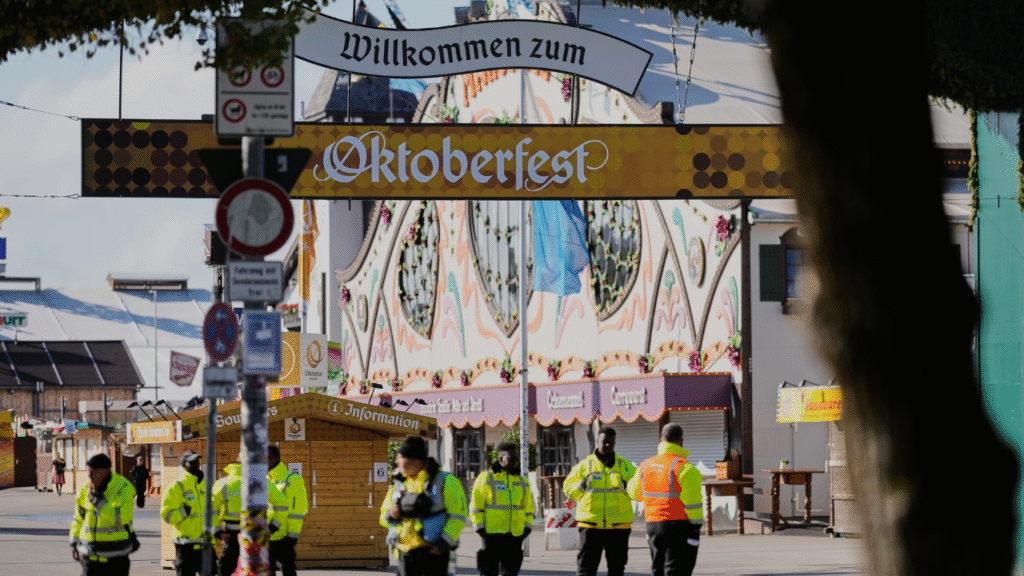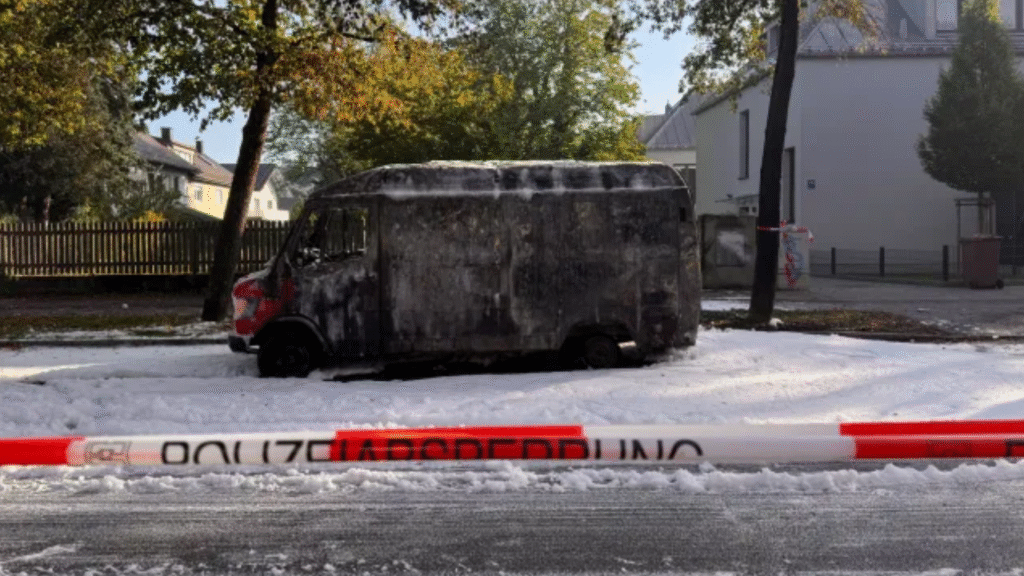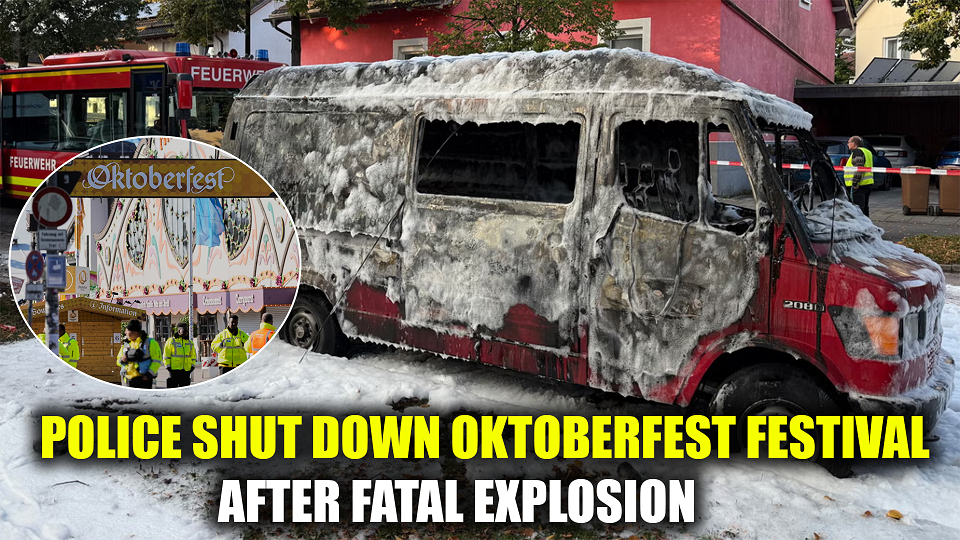Police shut down Oktoberfest after a fatal explosion has shocked millions across the world. Known as the world’s largest beer festival, Oktoberfest attracts millions of visitors every year in Munich, Germany. But this year, what was supposed to be a joyful celebration of Bavarian culture turned into a tragic scene. Authorities were forced to evacuate thousands of festivalgoers after a sudden explosion caused chaos and claimed at least one life.

This breaking news has not only left attendees in shock but has also raised serious questions about public safety at large-scale events like Oktoberfest 2025. In this article, we’ll cover what happened, why police shut down the festival, the ongoing investigation, and how this incident could affect the future of Oktoberfest.
What Happened at Oktoberfest 2025?
On the evening of September 30, 2025, a loud explosion rocked the festival grounds near the main beer tents in Munich’s Theresienwiese. Witnesses described hearing a “deafening bang” followed by smoke and panic. Security officials and local police immediately rushed to the scene, ordering an emergency evacuation of the festival area.
Authorities confirmed that at least one person was killed and several others injured. Within minutes, police declared the festival shut down, prioritizing safety over celebration.
Why Police Shut Down Oktoberfest After Fatal Explosion
The decision to shut down Oktoberfest after the explosion was based on immediate safety risks. With tens of thousands of visitors on-site, authorities could not take chances with crowd control or the possibility of additional threats.
Munich Police Chief stated, “The safety of citizens and visitors comes first. Until we know the cause and eliminate all risks, the event cannot continue.”
The shutdown ensured emergency teams could secure the area, investigate the explosion, and provide medical aid without obstruction from crowds.
The History of Safety at Oktoberfest
Oktoberfest has been celebrated since 1810, and while it is generally safe, this is not the first time tragedy has struck. The most infamous incident occurred in 1980, when a bombing at Oktoberfest killed 13 people and injured over 200.
Since then, security has been tight, with increased surveillance, bag checks, and police presence. However, the 2025 incident proves that even with advanced security measures, no event is completely immune to risks.
Eyewitness Accounts: Panic in the Tents
Festivalgoers described scenes of confusion and fear. One visitor said, “We were laughing, drinking, and singing, then suddenly everything stopped. People screamed and ran in every direction.”
Another witness shared how staff members quickly guided people out of the tents, preventing a stampede. These firsthand accounts highlight the professionalism of security staff and the resilience of attendees.
How the Shutdown Impacts Oktoberfest 2025
The immediate impact of the shutdown is economic and cultural. Oktoberfest generates billions of euros annually for Munich’s economy. Hotels, restaurants, breweries, and local businesses depend heavily on the event.
The cancellation not only disrupts tourism but also leaves thousands of workers without expected seasonal income. Beyond economics, the shutdown hurts cultural pride. Oktoberfest is a global symbol of Bavarian heritage, and halting it casts a shadow over the tradition.
Strategies for Safer Mass Gatherings
This incident reminds organizers worldwide of the importance of security at public events. Below are some strategies that experts recommend:
1. Enhanced Security Screening
Improved scanning technology at entry points can help detect dangerous items before they enter crowded venues.
2. Real-Time Monitoring
Using drones, AI-powered surveillance, and live-feed monitoring can allow authorities to spot threats early.
3. Emergency Preparedness
Staff should undergo regular training for evacuations, crowd management, and first-aid.
4. Public Awareness
Visitors should be educated on safety protocols, such as evacuation routes and emergency numbers.
Real-Life Case Study: The 1980 Oktoberfest Bombing
The 1980 bombing remains one of Germany’s darkest chapters. A right-wing extremist planted a bomb near the main entrance, causing one of the worst attacks in post-war German history.
Afterward, authorities completely overhauled security at Oktoberfest. More checkpoints, police patrols, and surveillance systems were added. The tragic memory of 1980 shaped how Oktoberfest has operated ever since, and 2025 will likely lead to another round of reforms.
FAQs About Police Shutting Down Oktoberfest After Fatal Explosion
1. Why did police shut down Oktoberfest after the explosion?
Police shut down Oktoberfest to ensure public safety, prevent further risks, and allow emergency services to operate effectively.
2. Was the Oktoberfest explosion in 2025 a terror attack?
As of now, investigators have not confirmed whether the explosion was accidental or deliberate. The investigation is ongoing.
3. Has Oktoberfest ever been shut down before?
Yes. In 1980, after a bombing, the event was temporarily shut down. In 2020 and 2021, the festival was canceled due to COVID-19.
4. How does the shutdown affect Munich’s economy?
Oktoberfest brings billions to the local economy. Shutting it down means massive losses for hotels, breweries, and tourism businesses.
5. Will Oktoberfest continue in the future after this tragedy?
Authorities are committed to keeping Oktoberfest alive but will likely impose stricter safety measures moving forward.
Conclusion
The news that police shut down Oktoberfest after a fatal explosion has left Munich and the world in mourning. What should have been a joyful celebration turned into a reminder of life’s fragility and the importance of safety.

While the cause of the explosion is still under investigation, the shutdown was a necessary step to protect lives. This tragedy will influence how future large-scale events are organized, with more emphasis on prevention and rapid response.
Despite the sadness, Oktoberfest will remain a cherished tradition. Its spirit of togetherness, culture, and joy will continue, but with renewed focus on ensuring that every visitor can celebrate safely.





